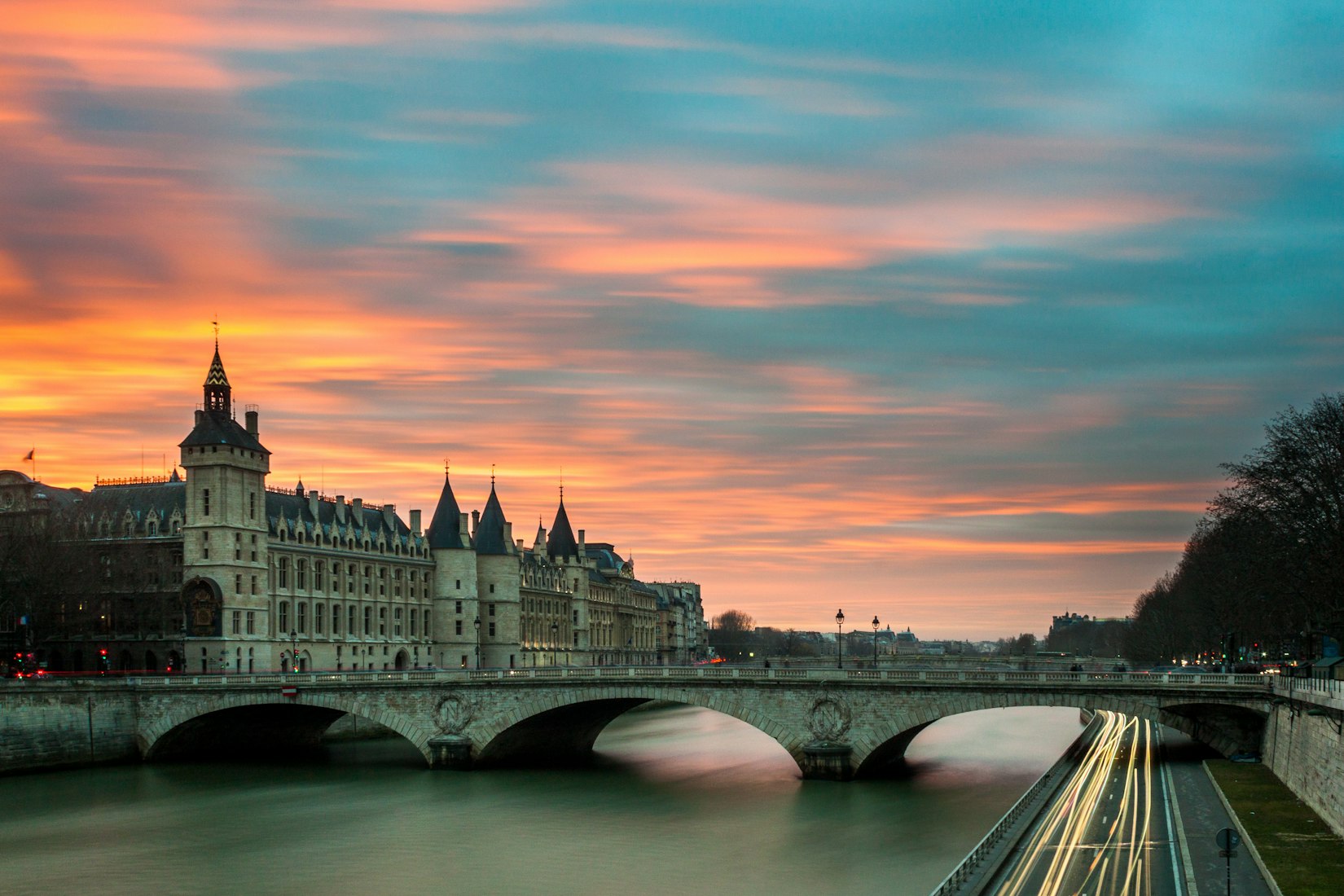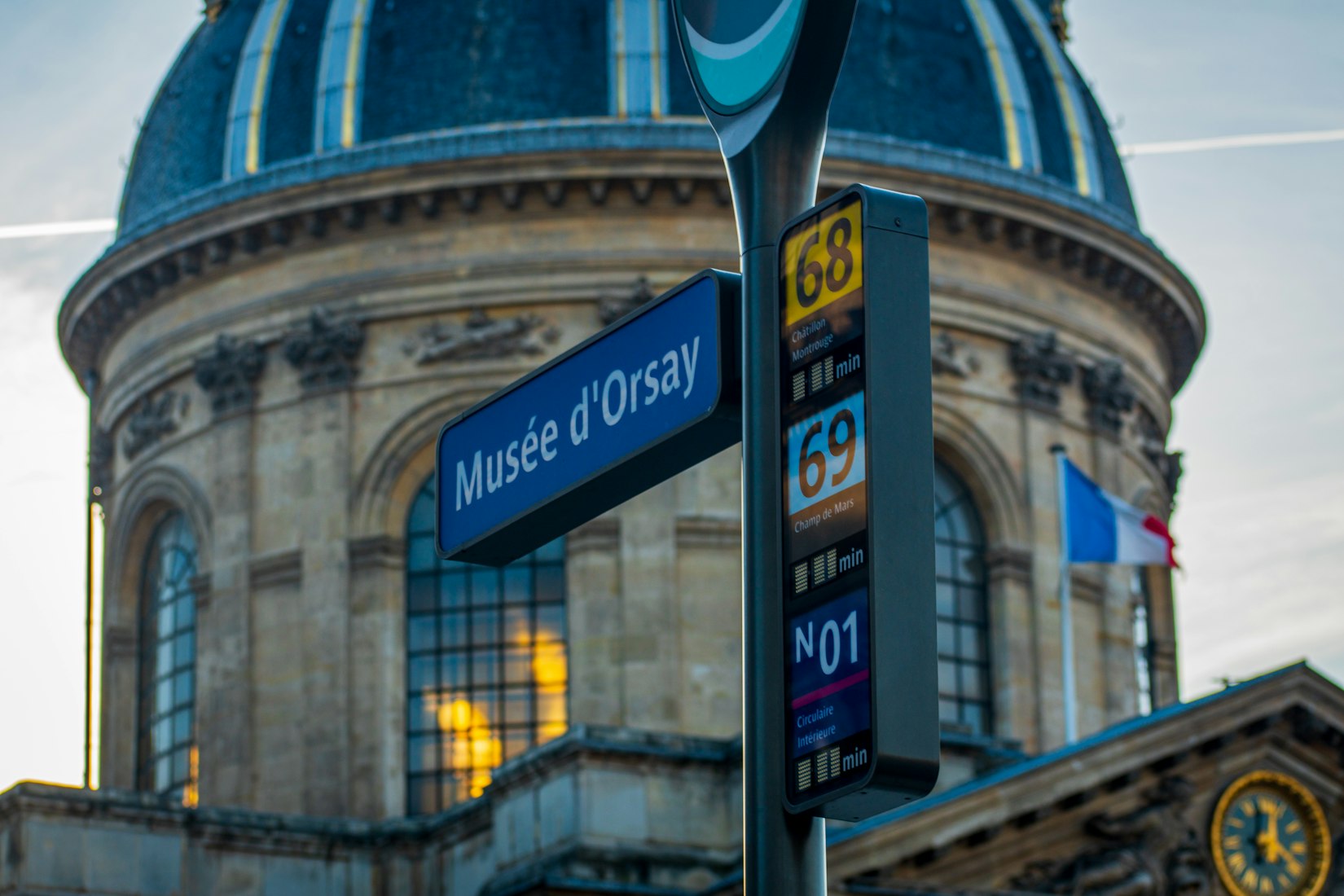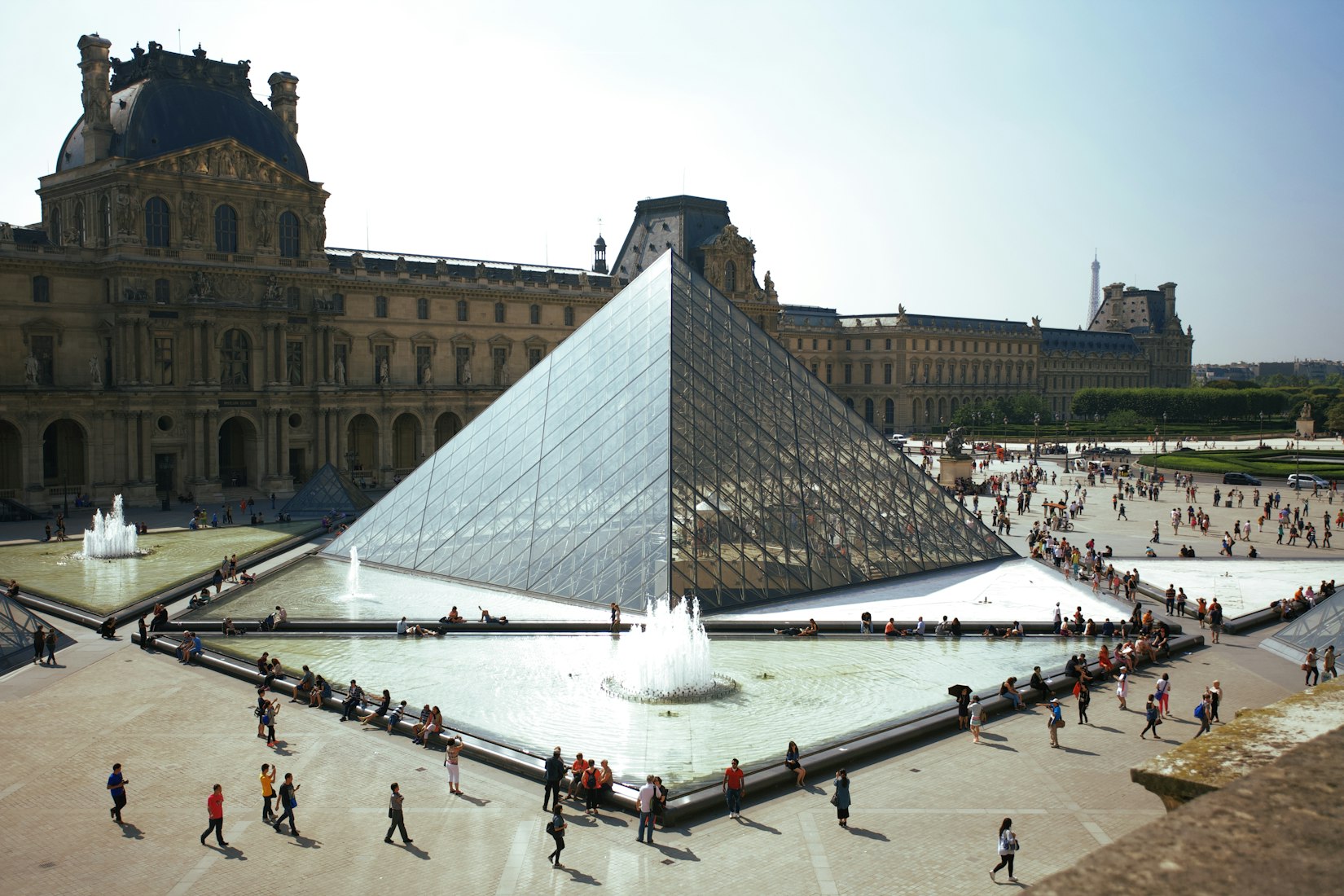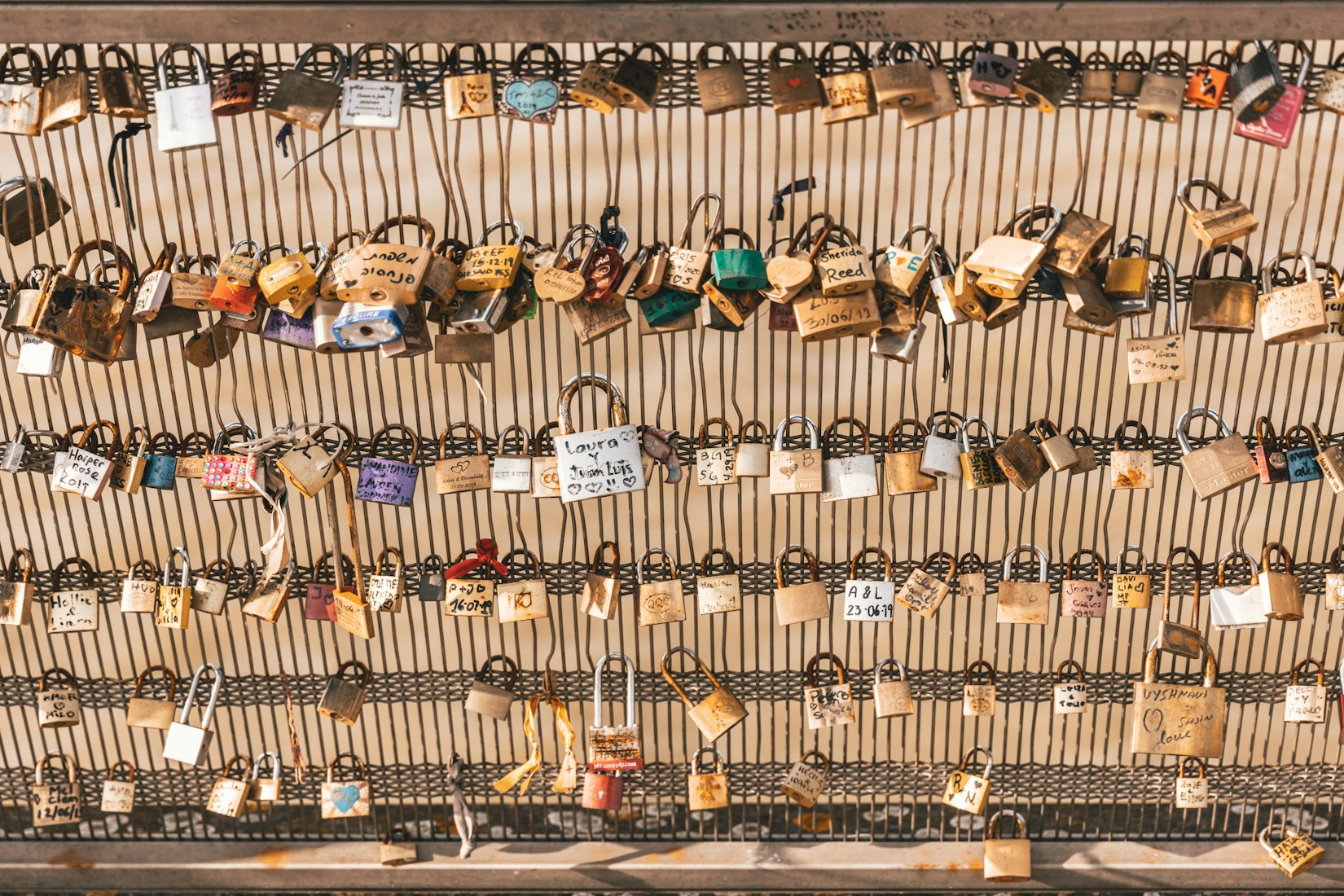Recently updated on April 28th, 2025 at 04:17 pm
If you’ve ever spent a little time among the bright lights of Paris, Bordeaux’s rambling vineyards or the sunny French Riviera, you’ll know that even a little parle en français goes a long way. Remembering a few essential French phrases not only helps you make the most of your trip, but you’ll also find that most locals appreciate the effort to learn a handful of basic French sayings. Just don’t be too surprised if they answer you back in English!
With that in mind, we’ve pulled together some basic French words to learn, common French language phrases and a few fun French expressions to know for your next trip to France. From greetings and pleasantries to getting around and ordering food, these basic french sayings will win you respect and unlock the magic of France. Bon voyage!

Greetings:
Bonjour! Au revoir! – Hello/Good day! Goodbye!
Hello and goodbye might be the most essential French phrases to learn, but along with please and thank you (more on those later), they’re the most important to commit to memory. There’s nothing like a smile and a warm greeting to kickstart a conversation with locals.
Salut! – Hi/Bye!
“Salut” Is a more informal way to say “hi”.
Bientôt! À plus! À tout à l’heure! – See you soon, See you later, See you in a while!
Rather than simply waving goodbye and saying au revoir or salut, you might hear someone say “see you soon” or variations of the same phrase.
Bon soir! – Good evening!
When night falls you’ll switch from Bonjour to Bon soir. It means good evening, and when you arrive at dinner reservations the manager will likely greet you with the common French greeting.
Coucou! – Hey there!
It sounds like “soo soo” and it might be the cutest greeting in the French language. Listen out for people who are close to one another using this sweet hello.
Pleasantries:
S’il vous plaît and merci – Please and thank you
Please and thank you are essential French phrases – no matter what language you’re talking in, it’s good to have good manners. “S’il te plaîtI” is a less formal way to say please, but as a rule of thumb stick with the more formal “vous”, unless you’re speaking to a child. And if someone says “merci” be prepared to reply with “de rien” (you’re welcome).
Pardon/Excusez-moi – Excuse me
This translation of “excuse me” is a great way to politely get someone’s attention, be it a waiter or someone to ask for directions. You’ll find it useful on public transport too, such as stepping off a metro train. If you bump into anyone, a “pardon” (sorry) should suffice.
RELATED CONTENT: Destination Guide to France
Enchanté – Pleased to meet you
If you’ve watched Emily in Paris you moight remember the song Enchanté (ohn-shawn-tay) sung by her room mate. It means pleased to meet you, and it’ll take your common French sayings like hello or goodbye to the next level.
De rien (duh ree-an) – You’re welcome
Questions to ask:
Ça va ? – How are you?
The most essential French phrases are the handiest. “Sa va” is an easy way to ask someone how they are going. If they ask you, you can reply with “Ça va” too, just change the tone or intonation to sound like you’re answering a question rather than asking one. For more advanced French learners, reply with “Et toi?” to ask “and you?”.

Comment vous appelez-vous?
For those times when you do strike up a conversation with a local, or perhaps a Trafalgar host, this is a polite way of asking someone’s name. Reply with “Je m’appelle…” (meaning “my name is…) or keep the conversation going by asking how they are. “Comment allez-vous?” is formal, and “ça va?” more friendly. You’ll probably hear the latter several times a day; it’s an essential French travel phrase.
Parlez-vous Anglais? – Do you speak English?
After pleasantries, “do you speak English?” is perhaps one of the most useful phrases to have in your back pocket. If you’re in an area popular with travellers, such as Paris or Bordeaux, the chances are that locals do.
RELATED CONTENT: 8 of the most beautiful castles in France
Je ne comprends pas – I don’t understand
If someone starts speaking rapid French language at you, you can respond with “je ne comprends pas”. Follow that up with parlez-vous Anglais? And they might be able to switch into English. This is one of the most essential French phrases when you’re new to the country.
Où est… – Where is…?
Meaning “where is…” this essential French phrase is the traveller’s best friend. At best, use it before the name of place you want to go – “Où est le musée du Louvre?”, for example – or at the very least say “Où est…” before pointing at a relevant map or picture.
Où sont les toilettes? – Where are the toilets?
Take note: asking for directions to the bathroom is a little different than the “Où est…” phrase. But it’s no less useful when you’re out exploring.
Quelle heure est-il? – What time is it?
In a hurry to make it to a museum on time? Waiting for a friend and you phone has died? Looking to chat up a handsome Frenchman? Ask them what time is it?

Getting around:
Où se trouve la station de métro la plus proche? – Where is the nearest metro station?
It’s one of the more tricky ones on our list, but “where is the nearest metro station?” is also among the most useful French phrases to learn before going to Paris. If you’re planning to use public transport while in Paris, you might also like to learn “je voudrais acheter un billet” (I would like to buy a ticket) and “c’est combien?” (how much is it?).
Helpful French phrases when listening for directions:
- À côté de – Next to
- En face de – Across from
- À droite – To the right
- À gauche – To the left
- Derrière – Behind
- Devant – In front of
Ordering food:
Je voudrais… – I would like…
I would like… two words that come especially handy in a restaurant. If you don’t have a menu to read off, you might what to finish that phrase with “une bière” (a beer), “un verre de vin” (a glass of wine), “un café” (a coffee) or “eau” (water).
Je ne peux pas manger… – I can’t eat…
If you or someone you’re travelling with has special dietary requirements, this phrase meaning “I can’t eat…” will come in handy. Some of the most common endings to that sentence are likely to be “le gluten” (gluten), “noix” (nuts), “la viande” (meat), “les fruits de mer” (shellfish) or “les produits laitiers” (dairy products). If you’re following a plant-based diet, remember “je suis végétalien”, meaning “I am vegan”.
Le menu, s’il vous plait – The menu, please
In Europe times can move differently, a little slower. So if you’re in a hurry to order, you might need to ask for the menu!
L’addition, s’il vous plaît – The bill/check, please
… and when you’ve finished enjoying your hearty dish coq au vin or crêpes Suzette, “L’addition, s’il vous plaît.” is a polite way of asking for the bill. Tipping in France isn’t required (you’ll often see a service charge or “service compris” on your bill), but if you do want to make a gesture of thanks, aim for €2 in a café or bar and between five and 10% of the bill in restaurants.
RELATED CONTENT: France: a timeless destination that will never go out of style
Extra useful French phrases:
Je t’aime – I love you
If there are essential French words to learn before going to Paris, this one – meaning “I love you” – might be the most import in the city of love and romance. Perhaps you’ll find your own Parisian love fling, and it might be useful while strolling hand-in-hand along the River Seine, in the atmospheric Parc des Buttes Chaumont or at a candlelit dinner for two in Montmartre.

Allez! – Let’s go!
Come on! Let’s go! Hurry up! There are a few different interpretations of this popular French word – a form of the verb “aller” which directly translates as “to go”. You might hear it if you’re dawdling in the Gare du Nord at rush hour, but a waiter might also say “allez-y” as in “go on, I’m ready to take your order”.
GET INSPIRED BY: Treasures of France including Normandy
C’est la vie – That’s life!
When locals utter this iconic French phrase they’ll often accompany it with a smile a small shrug. Use it in those moments when things don’t quite go to plan, but you’re determined to look on the bright side anyway.
Have you learnt any handy French phrases or basic French sayings on your travels? Leave them in the comments below…